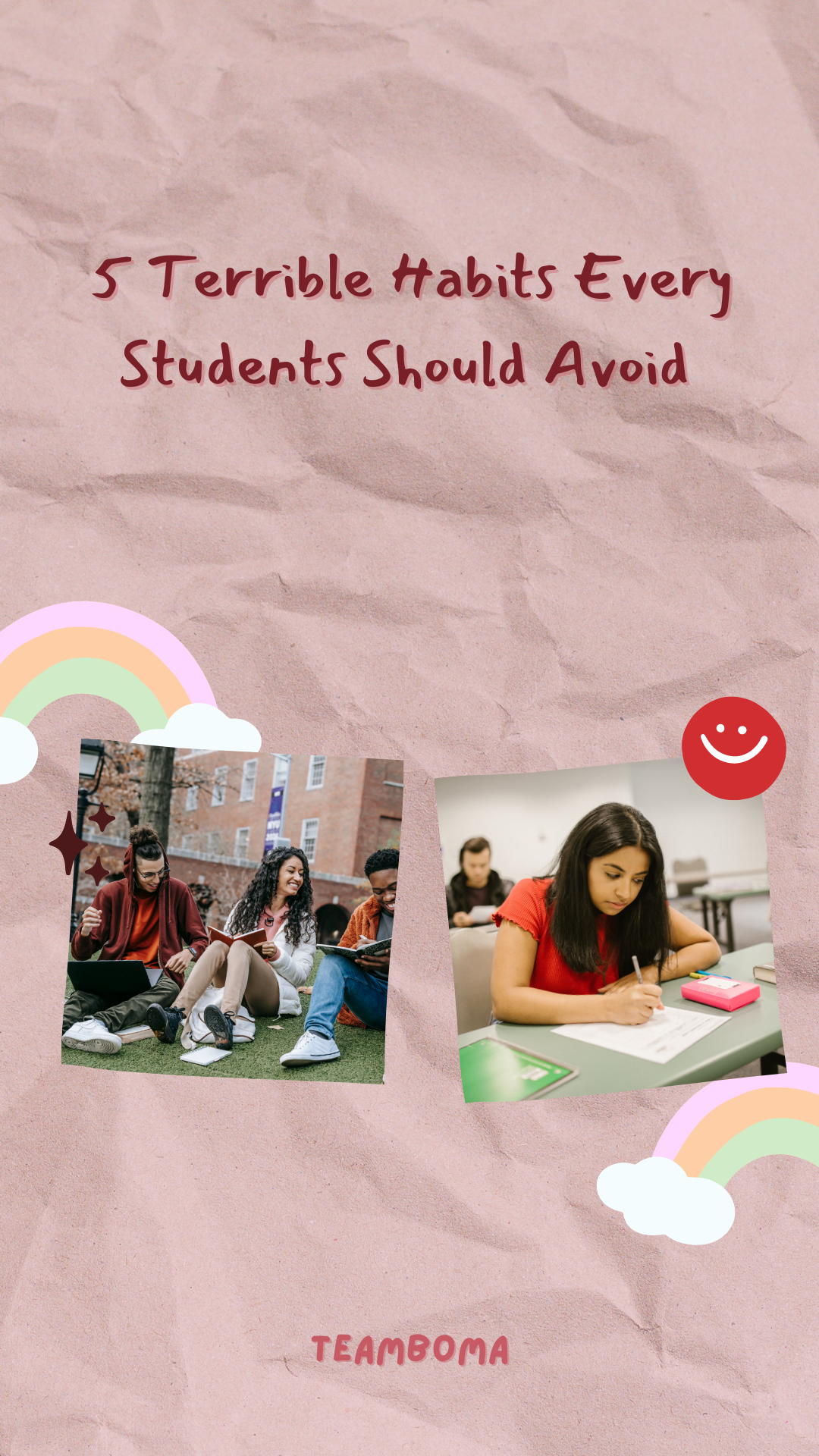5 Terrible Habits A+ Students Should Avoid

Achieving exceptional grades and standing out as an A+ student requires more than just intelligence and hard work. It demands a high level of discipline, effective study habits, and a conscious effort to avoid detrimental behaviors. A+ students understand that their success is not solely dependent on their innate abilities, but also on the habits they cultivate. They are keenly aware of the impact that their actions and choices can have on their academic performance.
In this article, we will delve into the discussion of five terrible habits that A+ students should avoid. These habits can be major stumbling blocks in their path to academic excellence, hindering their progress and undermining their potential. By identifying and eliminating these habits, A+ students can maintain their stellar performance, enhance their learning experience, and maximize their potential for success.
The first habit that A+ students must avoid is procrastination. Putting off tasks until the last minute can lead to increased stress, compromised quality of work, and missed deadlines. We will explore practical strategies to overcome this habit, including task breakdown, effective time management, and the development of a proactive mindset.
Closely related to procrastination is the habit of cramming. A+ students understand that true understanding and retention of knowledge require consistent effort and regular review. We will discuss the disadvantages of cramming and highlight the benefits of spaced repetition and active learning techniques.
Multitasking, a habit often glamorized in our fast-paced society, is another detrimental behavior that A+ students steer clear of. They recognize that dividing their attention between multiple tasks compromises their focus and productivity. We will emphasize the importance of monotasking and provide tips for improving concentration and efficiency.
READ ALSO » WHAT YOU SHOULD KNOW ABOUT INVESTMENT!
Furthermore, A+ students understand the value of organization. Being disorganized can lead to missed assignments, lost study materials, and a chaotic learning environment. We will explore effective strategies for maintaining organization, including the use of planners, digital tools, and structured routines.
Lastly, neglecting self-care is a habit that A+ students are vigilant about avoiding. They recognize that their physical and mental well-being are fundamental to their academic success. We will highlight the significance of self-care practices such as exercise, mindfulness, sleep, and social connections, and their positive impact on overall performance.
By addressing these five terrible habits, A+ students can create an environment conducive to success and maintain their exceptional academic performance. It is essential to develop positive habits that promote discipline, focus, and overall well-being. By doing so, A+ students can unlock their full potential and pave the way for long-term excellence.
- Procrastination
- Cramming g
- Multitasking
- Lack of Organisation
- Neglecting Self-Care
5 Terrible Habits A+ Students Should Avoid
1. Procrastination
Procrastination is the arch-nemesis of productivity. A+ students understand the detrimental effects of delaying tasks and actively work to combat this habit. Procrastination leads to increased stress, rushed work, and compromised quality of assignments. To overcome this habit, students should break down tasks into manageable chunks, create schedules and deadlines, and utilize time management techniques such as the Pomodoro Technique. By staying proactive and initiating tasks early, A+ students can maintain their consistency and produce high-quality work.
2. Cramming
Cramming, the practice of last-minute studying before an exam, is a common habit among students. While it may provide short-term relief, it is not an effective long-term strategy for learning. A+ students recognize the importance of regular review and spaced repetition. They allocate sufficient time throughout the semester to revisit and reinforce concepts, ensuring better retention and comprehension. By spreading out their study sessions and engaging in active learning methods, such as practice quizzes and concept mapping, A+ students enhance their understanding and perform better on exams.
3. Multitasking
In the era of smartphones and constant connectivity, multitasking has become a prevalent habit. However, A+ students understand that multitasking divides attention and hampers concentration. Switching between tasks can result in reduced productivity and compromised learning. Instead, they prioritize monotasking, focusing on one task at a time. By dedicating their full attention to a particular assignment or studying session, A+ students can improve their efficiency and comprehension, leading to better academic outcomes.
4. Lack of Organization
Disorganization can hinder A+ students' ability to manage their time and resources effectively. Without proper organization, important deadlines can be missed, notes can be misplaced, and study materials can be scattered. A+ students avoid this habit by establishing systems and routines. They use planners, calendars, and digital tools to keep track of assignments, prioritize tasks, and maintain a structured approach. By staying organized, A+ students reduce stress, maximize productivity, and ensure they are always prepared to excel.
5. Neglecting Self-Care
READ ALSO » OAU CLOSED DOWN, AMIDST STUDENTS PROTEST
A+ students understand that their well-being is crucial to their academic success. Neglecting self-care can lead to burnout, decreased motivation, and compromised performance. A+ students make it a priority to maintain a healthy balance between their studies and personal lives. They engage in regular exercise, practice mindfulness, get sufficient sleep, and maintain social connections. By taking care of their physical and mental well-being, A+ students enhance their cognitive abilities, increase focus, and approach their academic responsibilities with a refreshed mindset.
In conclusion, to achieve and maintain A+ grades, students must be mindful of their habits and actively work to eliminate detrimental behaviors. By avoiding procrastination, cramming, multitasking, lack of organization, and neglecting self-care, A+ students create an environment conducive to success. Cultivating positive habits, such as proactive planning, consistent review, monotasking, organization, and self-care, can transform their academic journey and pave the way for long-term excellence. So, let go of these terrible habits and embrace the habits of an intentional student.
